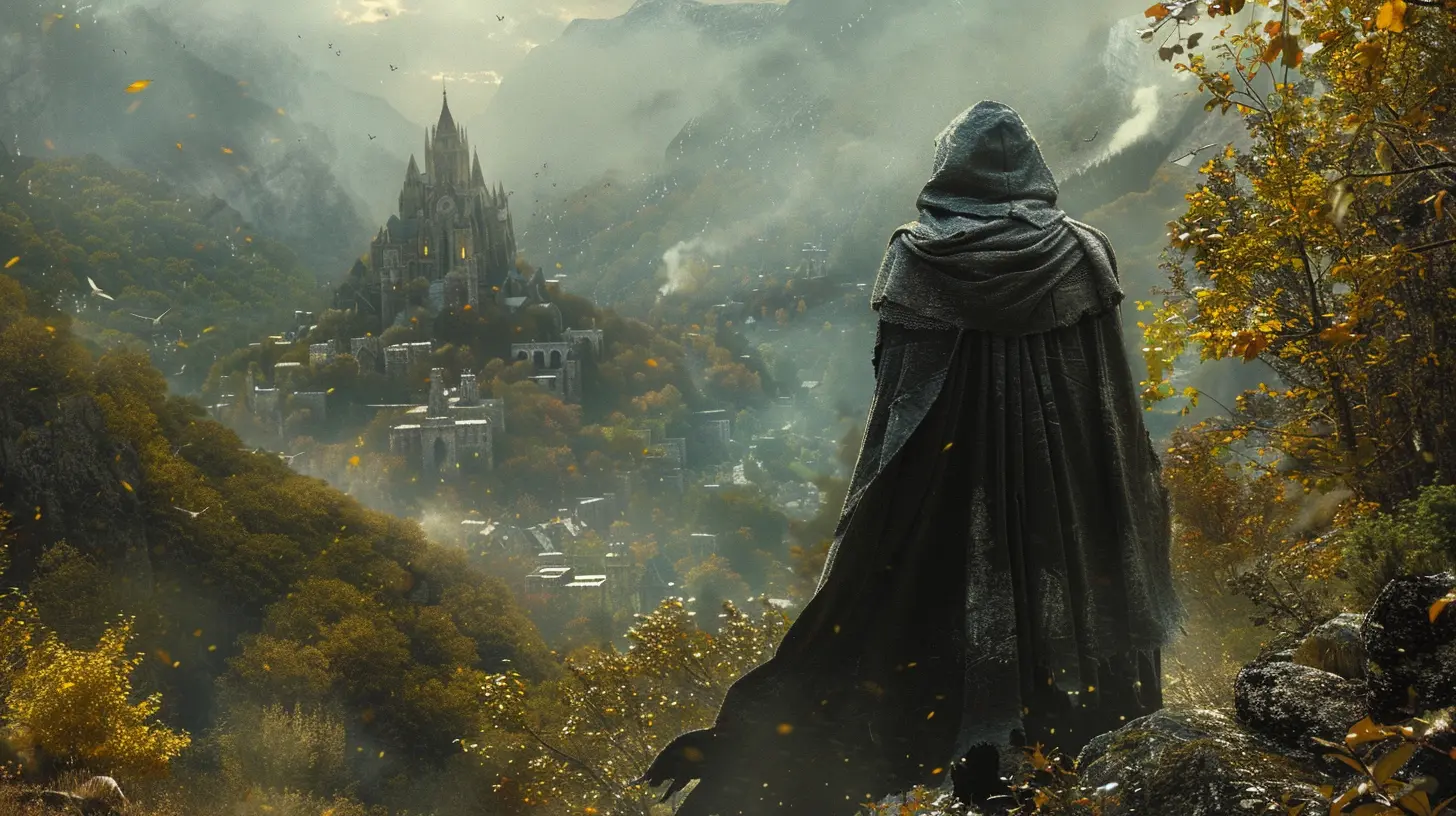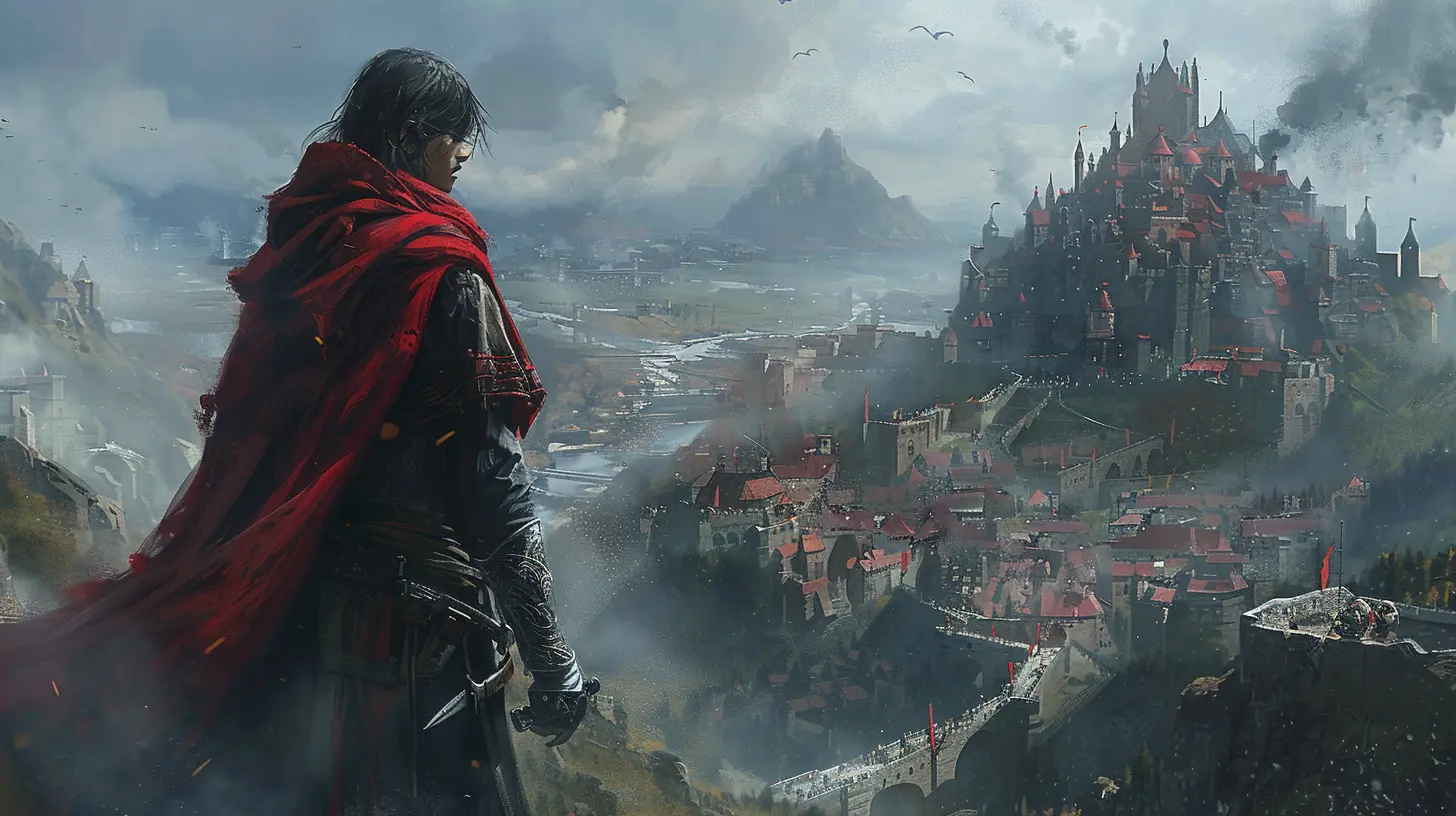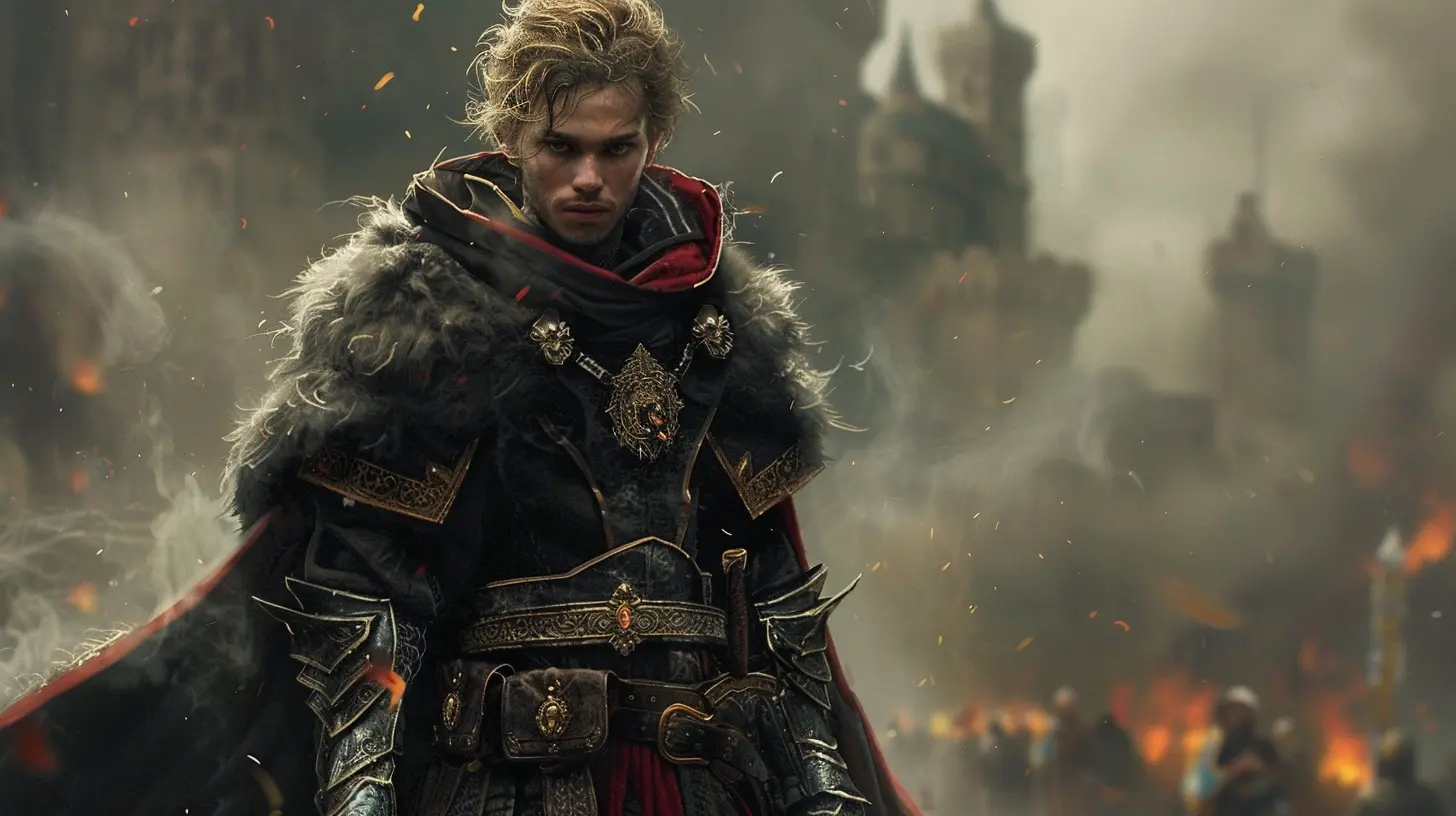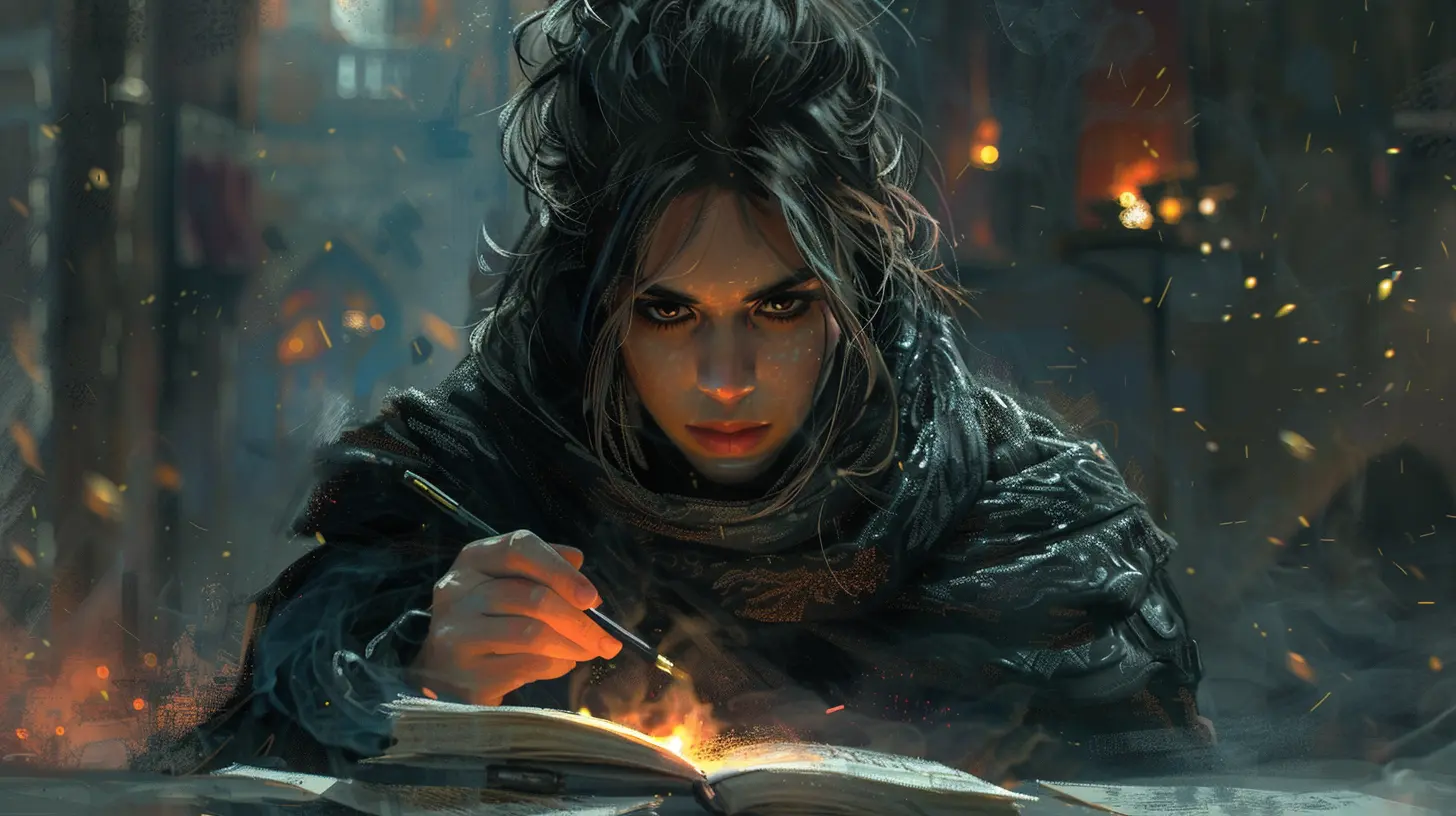Writing Complex Moral Dilemmas: RPG Scenarios with No Right Answer
10 June 2025
Crafting an RPG (role-playing game) is an art. You’ve got your world-building, character arcs, and plotlines—but let’s not forget the secret sauce that keeps players talking long after the dice have cooled: moral dilemmas. And I’m not just talking about your run-of-the-mill “steal bread to feed your family” kind of conundrum. We’re diving deep into the murky waters of complex moral dilemmas—those sticky scenarios where no matter what choice your players make, someone’s going to lose, something’s going to break, and you’ll all be left questioning your moral compass.
So, how do you craft RPG scenarios that hit hard, stay engaging, and challenge your players on a deeply personal level? Let’s break this down and get those creative juices flowing. 
What Makes a Moral Dilemma “Complex”?
Not all choices are created equal. A truly complex moral dilemma is more than just a fancy "yes" or "no" question. It’s when both (or all) options are equally valid—and equally terrible. Think of it as a mental tug-of-war where there is no right answer. Instead of your players instantly knowing what to do, they’ll sit there, staring at their character sheets, asking, “What the heck is the least awful thing I can do here?”The Key Ingredients of a Complex Moral Dilemma:
1. High Stakes: The decision has to matter. It's not impactful if the outcome only affects a random NPC they'll never see again.2. Conflicting Values: Pit two deeply held beliefs or loyalties against each other. Think “save my best friend or save the world” levels of conflict.
3. Unclear Outcomes: There shouldn’t be a “winning move.” The results of their choices should remain unpredictable to a degree.
4. Emotional Investment: If your players don’t care about the characters or the situation, the dilemma will fall flat.

Why Do Players Love (and Hate) Complex Moral Dilemmas?
Let’s face it—no one likes making impossible decisions. But at the same time, moral dilemmas add a richness to the game that’s hard to replicate. They give players a sense of agency, force them to think in character, and—most importantly—make your story unforgettable.Imagine this: Your players are debating whether to blow up an enemy stronghold. Easy choice, right? Now throw in the fact that the stronghold is housing a group of innocent children. Suddenly, the room goes quiet. These moments are the ones people will be talking about for years.
Plus, let’s be real—everyone secretly enjoys a little drama. These dilemmas let your players wrestle with their inner demons, show off their acting chops, and create those juicy, unforgettable stories you can laugh (or cry) about later. 
Examples of Complex RPG Moral Dilemmas
Let’s cut to the chase with some juicy examples. Feel free to steal, tweak, or use these as inspiration for your next campaign.1. The Village Is Burning—Sacrifice Few to Save Many
Your party stumbles upon a village under attack by raiders. The catch? The raiders have captured a small group of townsfolk and are threatening to slaughter them unless the party leaves the village defenseless. Stay and fight, and the entire town could be razed. Walk away, and the captives will surely be executed.This one is a classic numbers game: save a few or save many. And no matter what they choose, there’s a moral cost.
2. The Cure Comes at a Price
An NPC ally has been infected with a deadly plague that will soon spread to the entire kingdom. There’s a cure—a magical potion locked away in an ancient ruin. But the only way to activate the cure is to kill the last survivor of an extinct race (who also happens to be an innocent child). Ethically, your players are stuck between wiping out an entire species or letting the plague do its work.Go ahead, watch the party bicker for hours.
3. The Truth Will Hurt Them
Your players have uncovered a dark secret: A beloved NPC who is considered a hero has secretly committed atrocities in the past. Revealing the truth will destroy the NPC’s legacy and morale in the region, leading to widespread rebellion and chaos. Keeping the secret, however, means letting the atrocities stay buried and betraying their own values.Should they let the people keep their hero, or let the truth destroy everything?
4. The Two Doors
This one’s a classic: Your party is forced to choose between Door A and Door B. Behind Door A is a loved one or an ally they care deeply about. Behind Door B is a group of innocent strangers. The catch? Only one door can open, and the other group will perish.This dilemma hits especially hard when players have invested emotionally in their characters and relationships.
5. The Villain Has a Point
What happens when your “big bad” turns out to have a sympathetic motivation? Maybe they’re trying to save their people, avenge a historical injustice, or prevent an even bigger evil. Sure, they’re going about it in the worst way possible, but they’re not wrong.This twist forces your players to grapple with their sense of justice. Is defeating the villain really the right call? 
How to Write Moral Dilemmas That Stick
If you’re itching to add some soul-crushing choices to your campaign, here are a few tips to keep in mind while writing:1. Build Emotional Connections First
A moral dilemma won’t hit hard unless your players care about the people, places, or values involved. Spend time building up the NPCs, factions, or stakes before you throw your curveball. If your players love the NPC who’s stuck in the middle of the decision, your dilemma will land like a punch to the gut.2. Offer Multiple Layers of Conflict
The best dilemmas don’t just pit “good” versus “evil.” They force players to wrestle with competing loyalties, personal values, or differing cultural beliefs. If one player’s character values loyalty above all, and another’s prioritizes the greater good, watch the sparks fly.3. Don’t Tell Them What’s Right
The golden rule of moral dilemmas: Let the players decide for themselves. Don’t try to nudge them in a particular direction or give away which option will have the “best” outcome. Ambiguity is your friend.4. Make Sure Actions Have Consequences
Once your players make their choice, show how it ripples through the world. Did they let the villain go in the name of justice? Maybe the villain comes back stronger to wreak even more havoc. Did they sacrifice one ally to save another? Maybe the survivor struggles with guilt or resentment.Why It’s Okay to Break Hearts
As a game master or writer, it can feel mean to put your players through the wringer. But here’s the thing: Moral dilemmas are supposed to be hard. They’re meant to make your players think, question their beliefs, and grow as characters (and maybe even as people).At the end of the day, these tough choices are what make RPGs so special. They’re not just about winning or losing; they’re about telling stories—messy, emotional, unforgettable stories.
So go ahead. Break some hearts. Just remember to bring snacks for when your players need to stress-eat their feelings.
Final Thoughts
Crafting truly complex moral dilemmas isn’t about being cruel—it’s about creating moments that stick with your players. When done right, these choices define your campaign, create incredible drama, and give your players something to laugh, cry, or argue about for years to come.Because let’s be honest: Who wants to remember that one time they slayed some goblins when they could look back on the time they tore their party apart deciding the fate of an entire kingdom?
all images in this post were generated using AI tools
Category:
Role Playing GamesAuthor:

Whitman Adams
Discussion
rate this article
2 comments
Patience Abbott
Complex moral dilemmas enrich RPG narratives, challenging players to navigate shades of gray, fostering deeper engagement and personal reflection on choices.
June 11, 2025 at 4:36 AM

Whitman Adams
Thank you! I completely agree—exploring complex moral dilemmas truly enhances player engagement and encourages meaningful reflections on choice.
Morrow McConkey
This article brilliantly captures the essence of complex moral dilemmas in RPGs. By challenging players with choices devoid of clear right answers, it fosters deep emotional engagement and encourages thoughtful exploration of consequences. A must-read for game designers!
June 10, 2025 at 2:48 AM

Whitman Adams
Thank you for your kind words! I'm glad you found the article insightful and valuable for game design.


